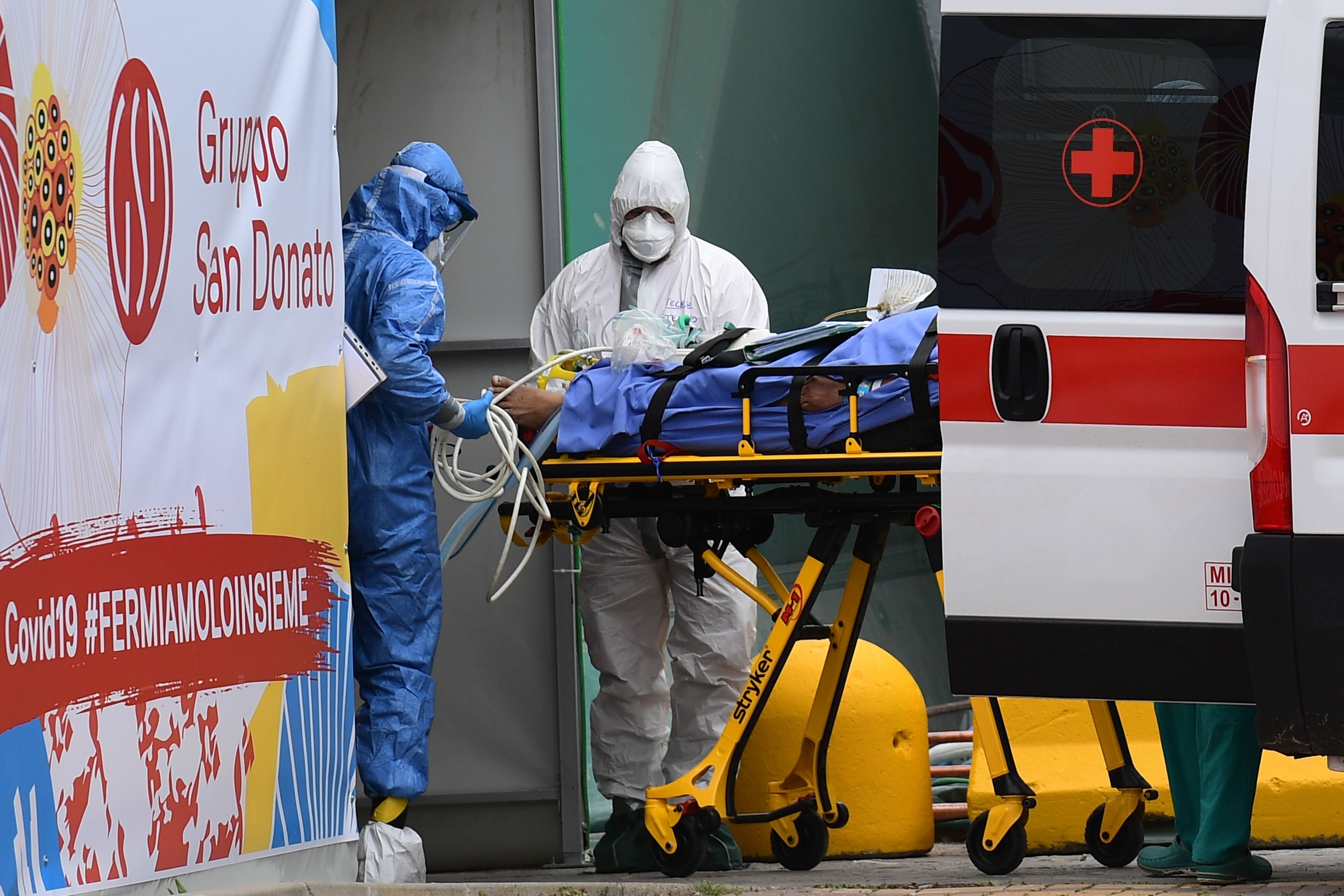Milan's alarming coronavirus trend threatens plan to restart Italy
Sign up now: Get ST's newsletters delivered to your inbox

Milan has become the province with the highest number of infected people.
PHOTO: AFP
Follow topic:
MILAN (BLOOMBERG) - Persistently high levels of coronavirus cases in Milan are complicating Prime Minister Giuseppe Conte's plans to restart the Italian economy.
Even as growth in new cases nationally has slowed in recent weeks, Milan has experienced a late wave, becoming the province with the highest number of infected people.
In the 30 days to April 16, the growth rate for new cases in Milan was 30 per cent higher than the national level, while total fatalities in the metropolitan area nearly doubled in March compared to the year before. Earlier this month, the city was forced to halt cremation rites for non-residents.
Wealthy Milan, which prides itself on northern European levels of industriousness and efficiency, has also been rocked by a scandal at its largest nursing home, where hundreds of patients died in recent weeks.
Mr Conte is preparing to at least partially open the country up, starting on May 4, but he's been under pressure from industrialists and regional politicians in Lombardy, the region with Milan as its capital, for a quicker return to business as usual. Italy reported a slight drop in new coronavirus cases on Friday (April 17) even as a record number of people were tested, though experts warn the virus is not yet in check.
Local leaders have argued that the grave situation in Milan and the surrounding area argues for caution.
"Until a few weeks ago, the regional government wanted me to shut down all public transportation because the situation was still not under control," Milan Mayor Giuseppe Sala, a centre-left politician, said on Facebook. "And now they want to restart everything?"
The questions and finger-pointing go back to the very start of the Italian outbreak. The first wave took place in a string of towns to the south and east of Milan, leading first to local lockdowns in late February, followed by the eventual decision on March 8 to shut down the entire region. That gap gave the virus time to spread, critics say.
The Lombardy government has come under fire from a group of senior physicians for failing to test healthcare workers until late in the outbreak. The group also cited a lack of clarity in setting up so-called red zones, particularly in the devastated area around the city of Bergamo.
"Lombardy's lockdown was implemented too late and it was incomplete," said Dr Roberto Burioni, a leading virologist and professor at Milan's University Vita Salute San Raffaele. He called the region's tracking and isolation measures "insufficient".
Milan, now eerily quiet after a month of lockdown measures, was more exposed to the outside world than other parts of the country due to global commercial ties, making it the logical centre for an outbreak, Danilo Cereda of the region's crisis unit said during a video conference this week.
But other vibrant sections of the industrial north, notably the Veneto region around Venice, have had far more success containing the outbreak. Some experts have suggested that decisions to concentrate health services into ever-bigger showcase facilities created vast breeding grounds for the virus.
"Lombardy politicians over the last 20 years have prioritised building big, often private hospitals, rather than supporting the public health system," Mr Giuseppe Remuzzi, managing director of Milan's Mario Negri pharmacological research institute, said in a phone interview.
Mismanagement of nursing homes and failure to provide masks and protective clothing to healthcare workers helped accelerate viral spread in the outbreak's early stages, according to the regional federation of doctors, surgeons and orthodontists.
Mr Giulio Gallera, Lombardy's top health official, rejected those accusations on April 8, saying the region followed Health Ministry indications. The recent surge in confirmed cases could be due to a campaign to test health workers, including those in nursing homes, he said.
Dr Carlo Nicoli, a family physician in Bresso, a Milan suburb of 26,000, said crucial time was lost in getting doctors the equipment they needed to work in an epidemic.
"In the two weeks after the outbreak started, I didn't receive anything from Lombardy's health protection agency," he said in an interview. "After that, all I got was 30 masks."

